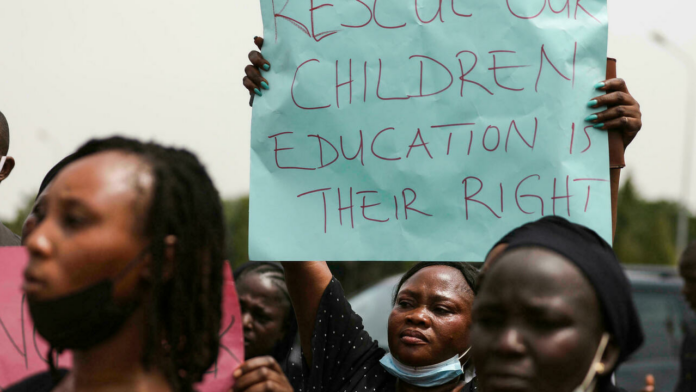By Grace Hwang
Nigeria has seen an alarming rise in mass school kidnappings in the past year and especially these last few months, leaving at least 1 million students unsure as to whether they will be able to attend school this year due to safety concerns. Armed groups have targeted schools to carry out their mass abductions for ransom, with more than 1,400 children abducted and 16 dead so far this year. At this point, 200 are still missing, leaving “families and communities remain[ing] fearful of sending children back to their classrooms”, said Peter Hawkins, UNICEF Representative in Nigeria.
These kidnappings first started with jihadist group Boko Haram, who carried out these abductions because they believed the education was “un-Islamic”, but now criminal gangs have adopted this practice ultimately for money. Gangs are especially prevalent in the northwestern state of Zamfara, so in an effort to end their reign of terror, authorities have tried various methods to stop these gangs, including amnesties for members that express regret and a mining ban after gold was suspected to be funding these kidnappers. However, these methods proved to be largely ineffective, and after 73 students from a state-run school were abducted in early September, a more drastic measure was imposed: shutting down all of Zamfara’s 240 mobile towers.
Cutting off access to the internet and mobile phones prevented the bandits from communicating with each other and negotiating ransoms with the families of those abducted, eventually allowing those students to be freed. But while those students made it out alive, there are those who have not been so lucky, and that is what makes families so terrified for their children’s safety as the upcoming school year begins.

